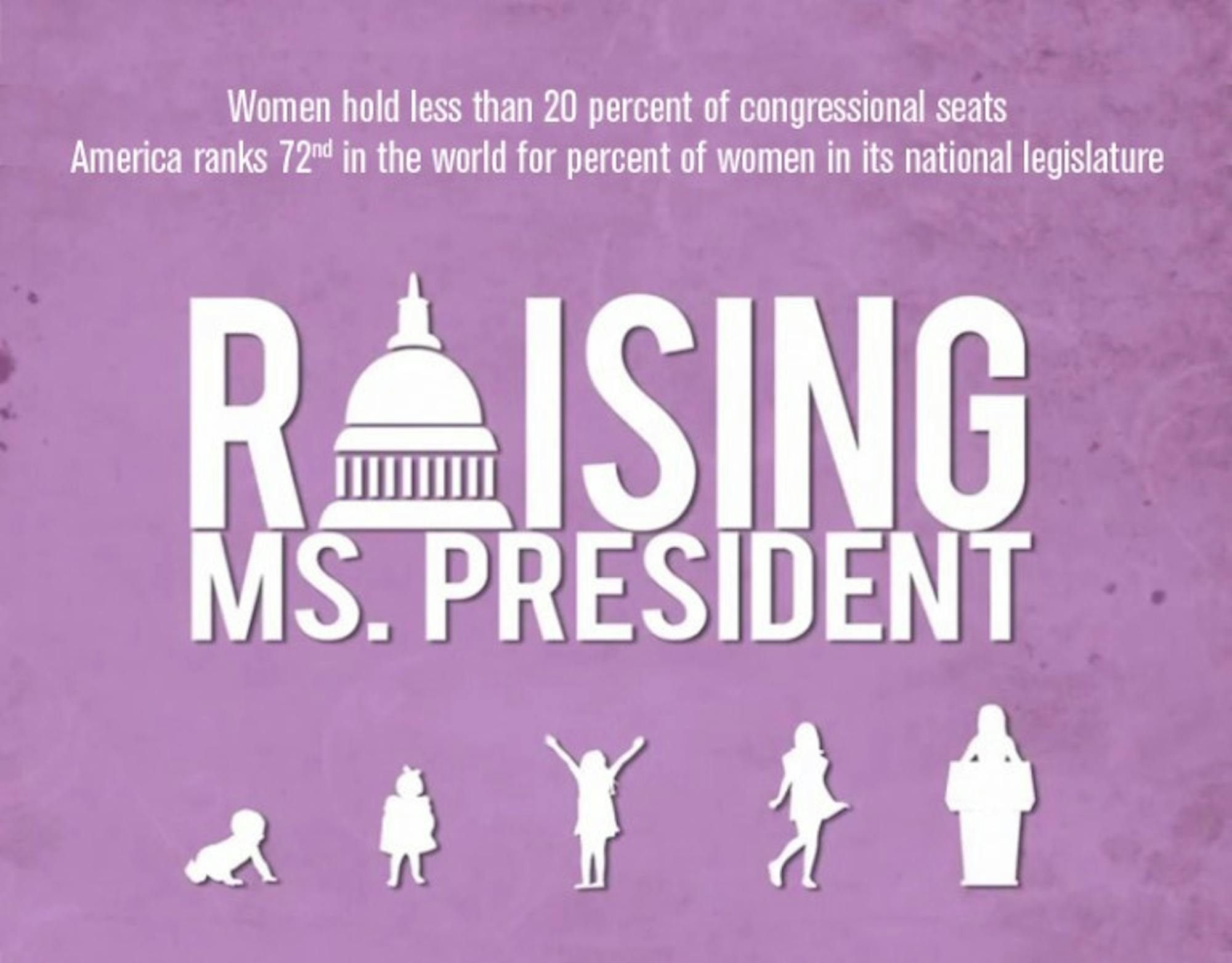Saint Mary’s, the Center for Intercultural Leadership (CWIL) and the Girl Scouts of Northern Indiana-Michiana held a screening Wednesday evening of “Raising Ms. President,” a documentary about raising the next generation of female political leaders, followed by a panel discussion.
Elaine Meyer-Lee, director of CWIL, introduced the documentary.
“As you are probably well aware, despite making significant strides in achieving gender equality in this country, women still hold less than 20 percent of Congressional seats,” Meyer-Lee said. “Compared to other nations, the United States is both low and losing ground in women’s political representation. America now ranks 72nd in the world for percentage of women in its national legislature, down from 59th in 1998. We are well below Uganda, Algeria, Zimbabwe, Afghanistan and Iraq.”
Statistics show that at the rate representation is improving, women will not achieve equal representation for 500 years, Meyer-Lee said.
“Having more women in office not only upholds democratic values of fairness in representative government, but … various studies have also shown that the presence of more women in legislatures makes a significant difference in terms of the kind of policies that get passed,” Meyer-Lee said.
The film itself focused on how society in America specifically has created an environment in which women do not feel they can or should run for public office. It highlighted programs and ways to show young girls that politics is a place for women too.
Panelists in the discussion included Mayor Blair Milo from LaPorte, Indiana; Elizabeth Bennion, professor of political science and director of the American Democracy Project at Indiana University South Bend and Councilwoman Diana Hess of St. Joseph County.
“What motivated me to be able to make that decision to run for office was to do something because I saw a problem in my community,” Milo said. “There seems to be a general theme [in the documentary] about how we can overcome and encourage women in particular to become a city councilwoman or a representative or a senator or the president.
“I think there is a broader question of why one would want to do that. What is it you want to do in any of these particulate positions? Not to be a senator or a representative, but what is it you want to do in any of those particular positions, and that’s a key piece I think needs to be addressed when you’re encouraging individuals to run.”
The film offered provocative commentary through statistics and discussion about the differences women can make, Bennion said.
“I think you have a tremendous opportunity when you have more women involved,” she said. “This is not to say that men aren’t good government leaders, but you see a different dynamic in some of the conversations when women are a part of it.”
Hess said growing up during the height of the feminist movement, which happened along side the Civil Rights movement and the Anti-Vietnam war movement, helped form her political sensibilities.
“I saw many battles and witnessed the victories,” Hess said. “In the years since, it seems we have not gained and in many cases have lost ground, reminding me how important it is to stay engaged and remain vigilant in the political and democratic process and just how critical it is who we elect to represent us.”














